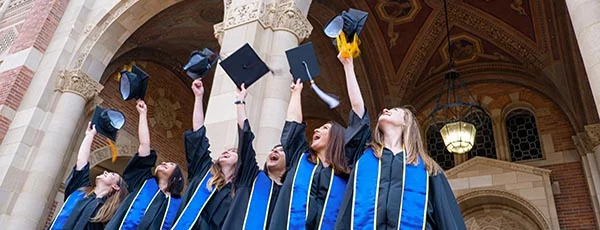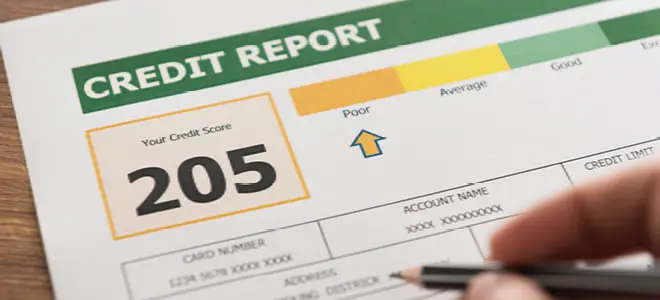Student Loan Forgiveness

- UpdatedOct 4, 2024
- There are several government student loan forgiveness programs.
- Student loan forgiveness through debt settlement is sometimes possible.
- It is very difficult (but sometimes possible) to discharge student loans in bankruptcy.
Table of Contents
There's been a lot of talk about universal government student loan forgiveness. To date, though, nothing like this has been approved.
You may not have to wait to see if the government forgives all student debts because other existing student loan forgiveness programs can wipe out some or all of your debt.
This article covers various ways of getting your student loans forgiven. Topics discussed include:
What is student loan debt forgiveness?
Student loan forgiveness programs by occupation
Loans forgiven with income-driven repayment plans
Forgiveness for students at fraudulent institutions
Debt settlement for student loans
What about bankruptcy and student loans?
Student loan debt forgiveness: FAQs
What Is Student Loan Debt Forgiveness?
Loan forgiveness wipes some or all of what you owe off the books.
This kind of student loan forgiveness applies only in specific qualifying cases. This article will describe those special programs and their requirements.
When discussing student loan forgiveness programs, it's important to know whether you have a federal or private student loan. If you aren't sure what kind of loan you have, you can find out on the U.S. Department of Education's Federal Student Aid website. Or, you can contact your loan servicer.
Government programs apply to federal student loans. The following sections of this article discuss some of those programs.
Options for private loans are more limited and are covered separately.
Student Loan Forgiveness Programs by Occupation
One type of federal loan forgiveness program is designed to reward people for pursuing certain occupations after they get out of school. Here are some examples of those programs.
Teacher loan forgiveness
This program provides a limited amount of federal student loan debt forgiveness for borrowers who teach in schools that serve low-income families.
Teacher loan forgiveness can provide up to $17,500 in total student debt relief. Qualifying requirements include:
Teaching in elementary or secondary schools or educational service agencies that serve low-income families
Completing five full, consecutive school years of teaching at a qualifying school
Public service loan forgiveness (PSLF)
Public service loan forgiveness or PSLF is available to eligible government and non-profit employees.
If you are an employee of a qualifying organization, you may be eligible to have your remaining loan balance forgiven. This can happen after you've made ten years' worth of monthly payments.
Student debt forgiveness for military service
People who serve in the military may qualify for the PSLF program described above. In addition, the government offers a variety of assistance programs and repayment plans as a reward for military service.
Some examples include:
A cap on your loan interest rate during periods of active duty
A 0% interest rate for up to 60 months while serving in a hostile area
Postponement of repayment during and immediately after active duty
Repayment of your loan by the Department of Defense in special cases
Discharge of your student loans in the event of a service-connected disability
Eligibility is based on specific circumstances. Visit the Federal Student Aid website for more information on student loan benefits for military members.
Segal AmeriCorps Education Award
This is student financial assistance for people who complete a term of service within a 12-month period in a qualifying Americorps program. These include:
AmeriCorps NCCC
AmeriCorps State and National
AmeriCorps VISTA
This award is not technically loan forgiveness. Instead, it is an award grant that can be used towards repaying an education loan or for future academic expenses.
Loans Forgiven With Income-Driven Repayment Plans
One benefit available to federal student loan borrowers is an income-driven repayment (IDR) plan. This can make repayment more affordable. It bases your monthly payments on how much money you make.
Besides making sure those payments don't consume too much of your budget, an IDR plan can lead to the forgiveness of a portion of your student loan.
Once you've made qualifying payments towards an IDR plan for 20 or 25 years (depending on the specifics of your loan), any remaining loan balance may be forgiven.
The Department of Education recently announced that some months of repayments previously not counted towards forgiveness eligibility would now be included. So, if you've been repaying your loan through an IDR program, you may be closer to loan forgiveness than you think.
Forgiveness for Students at Fraudulent Institutions
Some student borrowers were victimized by schools that made fraudulent claims about their degree programs.
In some cases, those programs left students with education loans to repay but without the earning potential to repay them.
People in that situation may be eligible to make a borrower defense to repayment claim. This can discharge student loan balances for victims of fraudulent institutions.
These claims are granted on a case-by-case basis. Also, the government has granted blanket relief for some instances where fraud affected a large number of people.
Here are some of the schools whose former students might be eligible for debt relief via a borrower defense to repayment claim:
Corinthian Colleges
Marinello School of Beauty
DeVry University
Minnesota School of Business
Globe University
Westwood College
ITT Technical Institute
Debt Settlement for Student Loans
Debt settlement means negotiating to have a creditor accept less than the full amount owed. You can try negotiating this yourself or hire someone to do it for you.
Debt settlement might succeed if you can demonstrate that you can't pay the full amount. The creditor might decide it's better to settle for a partial amount rather than go through a lengthy collections process.
Various forgiveness and repayment programs for federal student loans already exist. If you don't qualify for one of these, it may be hard to prove sufficient need to be granted loan forgiveness through debt settlement.
For private student loans, though, a negotiated debt settlement might be a good alternative. That's because formal forgiveness programs for private loans don't currently exist.
Again though, you'll have to be able to show that you really can't pay the full amount. You'll also need to offer a worthwhile amount to whoever owns the loan.
Your chances of having your loan settled for a reduced amount are better if you've already started to default on your student loan payments. However, that and the settlement itself can seriously hurt your credit score.
There can be another drawback of debt settlement. The IRS may view any portion of the loan written off as taxable income. If your debts exceed your assets, the IRS considers you insolvent, which means your forgiven debt is likely not taxable. Complete an IRS insolvency worksheet or ask a tax pro.
What About Bankruptcy and Student Loans?
Traditionally, student loans were excluded from bankruptcy proceedings. That has begun to change in recent years.
Now you may be able to get some or all of your student loan debt discharged in a bankruptcy proceeding. To do this, you have to prove that repaying the loan would cause undue hardship.
This involves showing that:
Repaying the loan would prevent you from having a minimal standard of living; and
This hardship would be likely to continue for an extended portion of the repayment period; and
You made a reasonable effort to keep up with payments before filing bankruptcy.
If you are successful, your bankruptcy will stay on your credit report for anywhere from seven to ten years. That will make it very hard to get credit during that time.
Debt relief stats and trends
We looked at a sample of data from Freedom Debt Relief of people seeking debt relief during August 2024. The data uncovers various trends and statistics about people seeking debt help.
FICO scores and enrolled debt
Curious about the credit scores of those in debt relief? In August 2024, the average FICO score for people enrolling in a debt settlement program was 583, with an average enrolled debt of $24,249. For different age groups, the FICO scores varied. For instance, those aged 51-65 had an average FICO score of 588 and an enrolled debt of $25,402. The 18-25 age group had an average FICO score of 548 and an enrolled debt of $14,432. No matter your age or debt level, it's reassuring to know you're not alone. Taking the step to seek help can lead you towards a brighter financial future.
Student loan debt – average debt by selected states.
According to the 2023 Federal Reserve Survey of Consumer Finances (SCF) the average student debt for those with a balance was $46,980. The percentage of families with student debt was 22%. (Note: It used 2022 data).
Student loan debt among those seeking debt relief is prevalent. In August 2024, 24% of the debt relief seekers had student debt. The average student debt balance (for those with student debt) was 50087.
Here is a quick look at the top five states by average student debt balance.
| State | Percent with student loans | Average Balance for those with student loans | Average monthly payment |
|---|---|---|---|
| Washington DC | 29 | $85,809 | $208 |
| Mississipi | 29 | $58,265 | $181 |
| Georgia | 31 | $56,074 | $145 |
| New Jersey | 29 | $54,691 | $197 |
| Maryland | 26 | $54,410 | $124 |
The statistics are based on all debt relief seekers with a student loan balance over $0.
Student debt is an important part of many households' financial picture. When you examine your finances, consider your total debt and your monthly payments.
Tackle Financial Challenges
Don’t let debt overwhelm you. Learn more about debt relief options. They can help you tackle your financial challenges. This is true whether you have high credit card balances or many tradelines. Start your path to recovery with the first step.
Show source
Is the government going to forgive student loan debt?
It's been talked about a lot, but there are some serious obstacles to it happening. You may be better off checking out one of the types of relief that is available already. Several of these are described in this article.
Does public service loan forgiveness apply to private student loans?
No, it does not. That is offered only as a benefit for federal student loan borrowers. The same goes for debt forgiveness tied to military service, teaching and service in an AmeriCorps program.
Is debt consolidation a good idea for student loans?
Sometimes, but there may be problems. It can be hard to lower the interest rate on a federal loan because they are relatively low. Also, if you pay off a federal loan with a private loan, you would give up access to special programs and protections for federal student loan borrowers. In some cases, debt consolidation or refinancing can lengthen the time to repay your loan. That may result in you paying more interest.


